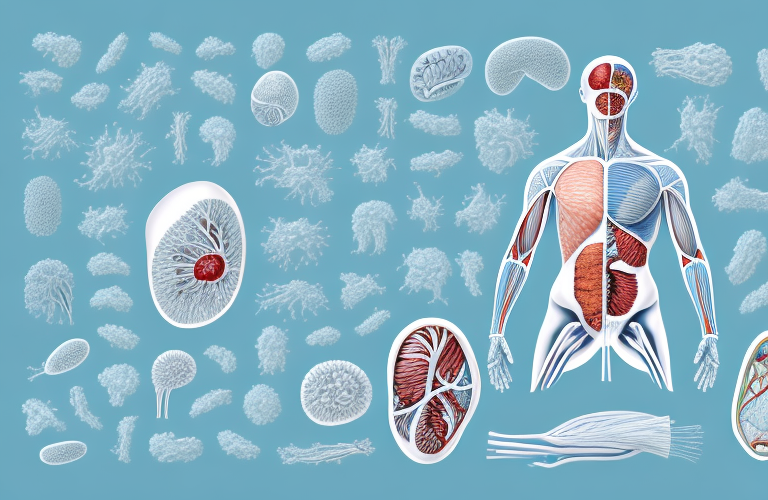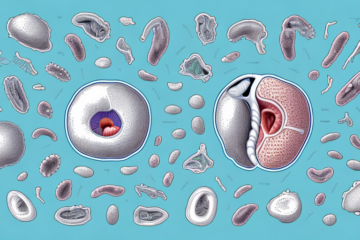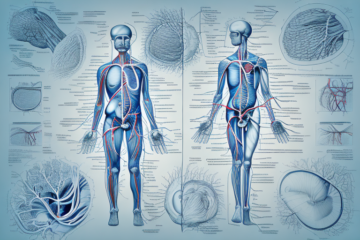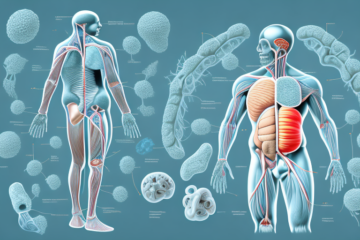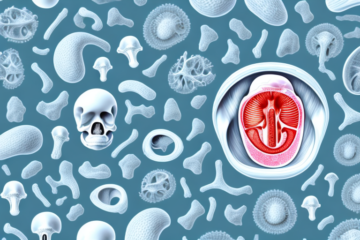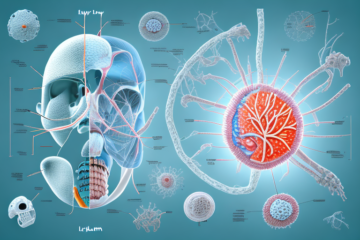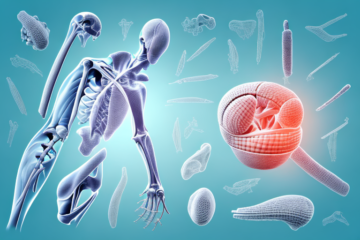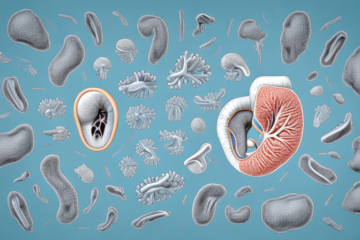The stomach is a muscular organ located in the upper part of the abdomen and is an integral part of the digestive system. Its primary function is the breakdown and digestion of food, ensuring that the nutrients are absorbed by the body. Understanding the stomach’s anatomy, its role in digestion, and the factors affecting its health and function is vital to maintaining optimal overall health.
The Role of the Stomach in Digestion
After food is chewed and swallowed, it travels down the esophagus to the stomach. Once in the stomach, the food mixes with digestive juices, including hydrochloric acid and enzymes, which help break down food into smaller particles. This process is referred to as mechanical digestion and prepares the food for chemical digestion, where the nutrients are finally absorbed. The stomach’s contractions, known as peristalsis, aid in mixing and grinding the food to enable efficient digestion. Once the food is processed, it is pushed through the pyloric valve and into the small intestine for further digestion and absorption of nutrients.
It is important to note that the stomach also plays a role in the immune system. The acidic environment of the stomach helps to kill harmful bacteria and viruses that may be present in the food we consume. Additionally, the stomach lining contains cells that produce mucus, which acts as a protective barrier against harmful substances that may be present in the food.
However, certain factors can negatively impact the stomach’s ability to function properly. For example, excessive alcohol consumption can damage the stomach lining and lead to inflammation and ulcers. Additionally, stress and certain medications can also disrupt the balance of digestive juices in the stomach, leading to digestive issues such as acid reflux and indigestion.
Understanding the Anatomy of the Stomach
The stomach has four primary parts, the fundus, body, antrum, and pylorus. The fundus is the uppermost part and is responsible for storing food temporarily. The body is where most of the chemical and mechanical digestion processes take place, aided by gastric glands lining the stomach’s walls. The antrum connects the body to the pylorus and regulates gastric emptying. The pylorus is the valve that regulates the passage of food between the stomach and small intestine.
In addition to its primary functions, the stomach also plays a crucial role in the immune system. The stomach’s acidic environment helps to kill harmful bacteria and other pathogens that may be present in the food we consume. Additionally, the stomach produces mucus that acts as a protective barrier against these pathogens, preventing them from entering the bloodstream and causing infection. This is why it is important to maintain a healthy stomach and digestive system through a balanced diet and regular exercise.
The Different Layers of the Stomach Wall
The stomach wall comprises four layers, namely; the mucosa, submucosa, muscularis propria, and serosa. The innermost layer, mucosa, contains specialized cells that produce enzymes and acid for digestion, while the submucosa contains blood vessels, lymph nodes, and nerves for nutrient absorption and nerve control. The muscularis propria has three muscle layers that allow for the contraction and mixing of food, while the serosa is a thin membrane that covers the outer surface of the stomach, providing protection and support.
In addition to these layers, the stomach also has a network of nerves called the enteric nervous system, which controls the digestive process. This network of nerves is sometimes referred to as the “second brain” because it can function independently of the central nervous system. The enteric nervous system communicates with the brain through the vagus nerve, which allows for the regulation of digestion based on factors such as stress and emotions.
How Gastric Acid Helps Break Down Food
The stomach secretes hydrochloric acid that helps to break down proteins into amino acids for absorption in the small intestine. The acidic environment also kills any bacteria or virus present in the food, thus preventing infection. This acid is regulated through hormonal and neural mechanisms and can cause discomfort if it increases beyond desirable levels.
In addition to breaking down proteins and killing bacteria, gastric acid also plays a role in the absorption of certain minerals, such as calcium and iron. The acid helps to convert these minerals into forms that the body can easily absorb. However, individuals who take medications that reduce stomach acid production may be at risk for deficiencies in these minerals.
The Process of Stomach Contractions and Mixing
The stomach undergoes rhythmic contractions, which occur every few seconds to mix food with digestive juices. This process gradually converts the food into liquid form or chyme. As the chyme builds up, the stomach wall stretches and triggers nerve signals to slow the contractions to regulate the release of chyme to the small intestine.
Additionally, the stomach also secretes a hormone called gastrin, which stimulates the production of digestive juices and increases the strength of stomach contractions. Gastrin is released in response to the presence of food in the stomach and is regulated by the nervous system and other hormones.
Furthermore, the process of stomach contractions and mixing is essential for the absorption of nutrients from food. The chyme that is released from the stomach into the small intestine contains a mixture of partially digested food and digestive juices. This mixture is further broken down and absorbed by the small intestine, providing the body with the necessary nutrients for energy and growth.
Common Stomach Disorders and Their Symptoms
Stomach disorders are common and can affect anyone at any age. Some of the most common stomach disorders include acid reflux, ulcers, gastritis, and stomach cancer. Symptoms vary from person to person but may include abdominal pain, bloating, nausea, diarrhea, constipation, and vomiting.
Acid reflux, also known as gastroesophageal reflux disease (GERD), occurs when stomach acid flows back into the esophagus. This can cause heartburn, a burning sensation in the chest, and regurgitation, where stomach contents come back up into the mouth. Lifestyle changes, such as avoiding trigger foods and losing weight, can help manage symptoms.
Stomach cancer is a less common but more serious stomach disorder. Symptoms may include unexplained weight loss, loss of appetite, and blood in the stool. Treatment options may include surgery, chemotherapy, and radiation therapy, depending on the stage and location of the cancer.
Causes and Treatment Options for Acid Reflux
Acid reflux occurs when stomach acid flows back into the esophagus, causing heartburn. This condition may be caused by overeating, consuming acidic or spicy foods, or obesity. Treatment options include changes in diet, over-the-counter antacids, or prescription medications.
In addition to these causes, acid reflux can also be triggered by smoking, pregnancy, and certain medications such as aspirin or ibuprofen. It is important to identify and avoid triggers to prevent acid reflux symptoms. Lifestyle changes such as losing weight, quitting smoking, and avoiding trigger foods can also help manage acid reflux. In severe cases, surgery may be necessary to correct the issue.
The Link Between Stress and Stomach Health
Stress can lead to many adverse health effects, including affecting the stomach’s health. Chronic stress can cause digestive issues such as bloating, indigestion, or diarrhea. It’s essential to find healthy ways to manage stress, such as exercise, meditation, or counseling.
Research has shown that stress can also lead to the development of stomach ulcers. When the body is under stress, it produces more stomach acid, which can erode the lining of the stomach and cause painful ulcers. This is why it’s crucial to manage stress levels to prevent the development of ulcers.
In addition to physical symptoms, stress can also affect our eating habits, leading to unhealthy food choices and overeating. This can further exacerbate digestive issues and lead to weight gain. By managing stress levels, we can improve our overall health and well-being, including our stomach health.
Foods to Avoid for a Healthy Stomach
For optimal stomach health, avoid foods that are high in fat, spicy, or acidic. These foods may irritate the stomach lining, leading to digestive discomfort or acid reflux. Other foods that may cause stomach issues include alcohol, caffeine, and carbonated drinks.
In addition to the above mentioned foods, it is also recommended to avoid processed and fried foods as they are difficult to digest and can cause bloating and discomfort. It is important to maintain a balanced and healthy diet to keep your stomach happy and functioning properly. Incorporating foods such as lean proteins, fruits, vegetables, and whole grains can help improve digestion and prevent stomach issues.
Best Foods to Eat for Optimal Digestion
Eating foods that are high in fiber, such as fruits, vegetables, and whole grains, can help improve digestion. Lean proteins such as fish and poultry and low-fat dairy products are also beneficial to overall health. Drinking plenty of water and staying hydrated is also essential for proper digestion.
In addition to these foods, probiotics can also aid in digestion. Probiotics are live bacteria and yeasts that are good for your health, especially your digestive system. They can be found in fermented foods such as yogurt, kefir, sauerkraut, and kimchi. Adding these foods to your diet can help promote a healthy gut and improve digestion.
Lifestyle Changes to Improve Your Stomach Health
Lifestyle changes that can help improve stomach health include eating smaller, more frequent meals throughout the day, avoiding smoking and alcohol, maintaining a healthy weight, and exercising regularly. Reducing stress levels and getting enough sleep is also crucial.
In addition to the above mentioned lifestyle changes, it is important to consume a balanced and nutritious diet that is rich in fiber, whole grains, fruits, and vegetables. These foods help to promote healthy digestion and prevent constipation, which can lead to stomach discomfort.
Another important factor in maintaining good stomach health is staying hydrated. Drinking plenty of water and avoiding sugary drinks can help to keep the digestive system functioning properly and prevent issues such as acid reflux and heartburn.
Precautions to Take Before Undergoing Gastric Surgery
For those who need gastric surgery, ensuring proper preparation is key to minimizing risks and ensuring successful outcomes. Precautions include getting a comprehensive health evaluation, discussing the risks and benefits with a surgeon, and following pre-surgery dietary guidelines.
Another important precaution to take before undergoing gastric surgery is to quit smoking. Smoking can increase the risk of complications during and after surgery, such as infections, blood clots, and delayed healing. It is recommended to quit smoking at least four weeks before surgery to reduce these risks.
The Role of Probiotics in Maintaining a Healthy Gut
Probiotics are beneficial microorganisms that help maintain a healthy microbiome in the gut, aiding in digestion and immune function. Foods such as yogurt, kefir, and sauerkraut are high in probiotics. Supplements are also available for those who may need an extra boost.
Research has shown that probiotics can also have a positive impact on mental health. Studies have found that certain strains of probiotics can reduce symptoms of anxiety and depression, as well as improve overall mood.
It is important to note that not all probiotics are created equal. Different strains have different benefits, and it is important to choose a probiotic that is specific to your needs. Consulting with a healthcare professional can help determine which probiotic is best for you.
Natural Remedies for Indigestion and Bloating
Natural remedies such as peppermint tea, ginger, or chamomile tea may help relieve indigestion and bloating. Engaging in relaxation techniques such as yoga or meditation may also help to alleviate these symptoms.
In conclusion, maintaining a healthy stomach is essential for optimal overall health. Understanding the stomach’s anatomy, its role in digestion, and the factors that affect its health can help prevent digestive disorders and maintain healthy digestion. Making lifestyle changes, avoiding harmful foods, and using natural remedies to manage digestive issues can help ensure optimal stomach health for years to come.
It is important to note that while natural remedies can be effective in managing indigestion and bloating, it is always best to consult with a healthcare professional if symptoms persist or worsen. In some cases, underlying medical conditions may be the cause of digestive issues, and proper diagnosis and treatment may be necessary. Additionally, maintaining a balanced and nutritious diet, staying hydrated, and getting regular exercise can also contribute to overall digestive health.

